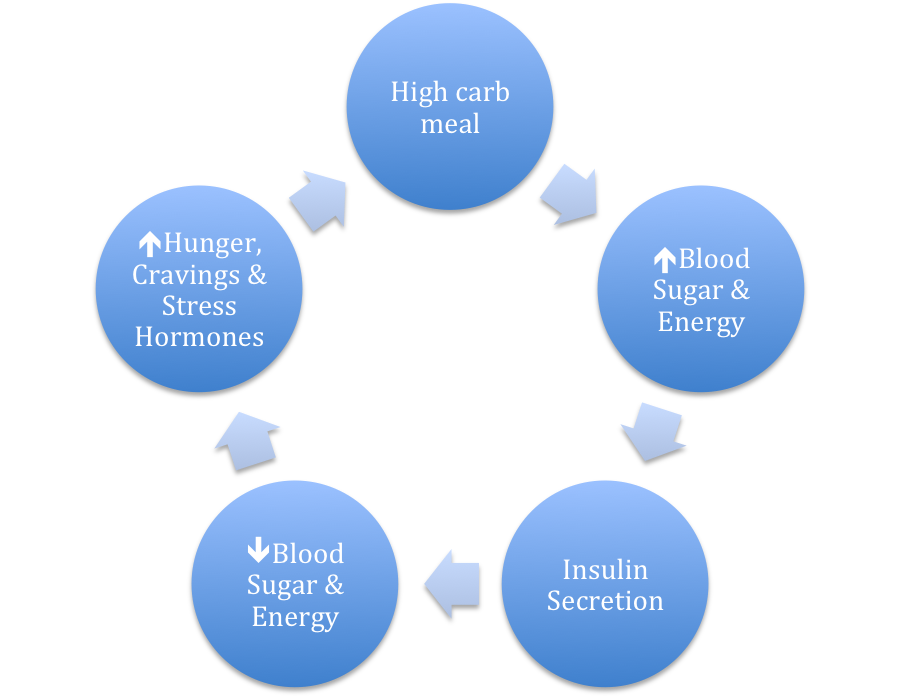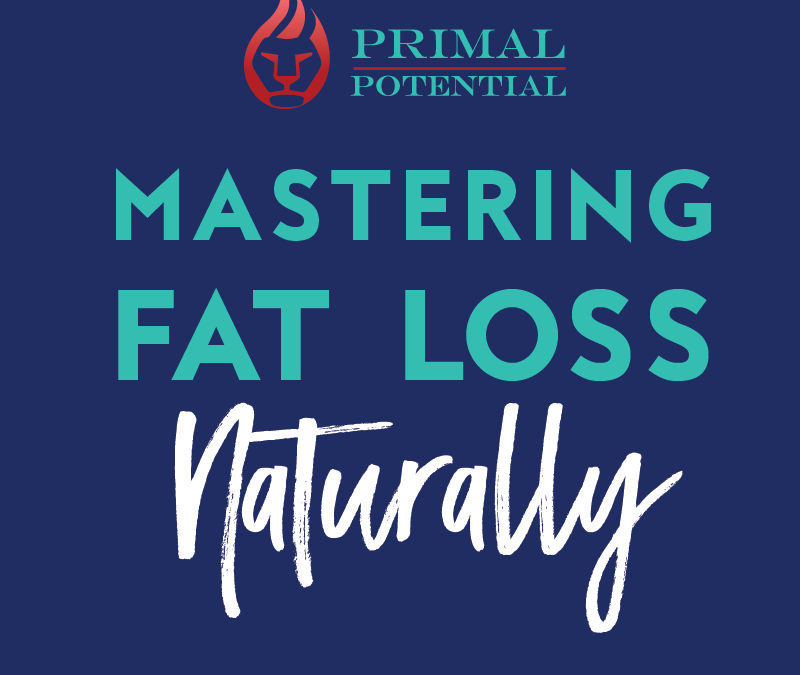
Why Carbs At Night for Fat Loss
Is having your carbs at night the nutritional answer to your fat loss questions? Let’s clear it up now.
There are so dang many myths about fat loss it’s horrifying. The vast majority of these myths are about carbohydrates and calories. Many of us are so desperate for the “answers” to our fat loss problems that we’ll try anything any everything to take the weight off. Unfortunately, that means we waste a whole lot of time and energy on strategies that just don’t work and/or aren’t remotely healthy.
Don’t believe me? Ask yourself why so many people are *always* on a diet yet can’t sustain lasting weight loss. No, seriously! Is what you’re doing working for you?
If you’d rather hear me explain this and watch a video training, click here! Otherwise, just keep on reading below. Some people are better are learning by hearing, so I wanted to offer that option before we contine.
One of the most common fat loss myths is that you should eat your carbs in the morning so you have all day to burn them off.
It’s not true. That myth does not reflect how your body works and in this post my goal is to explain why you should eat your carbs at night when fat loss is your goal.
Before I dive into the explanation, let me see if this sounds familiar to anyone out there: Have you ever had a bowl of cereal for breakfast and felt hungry less than hour later? Or chowed down on a big bagel but it didn’t hold you over for long?
When fat loss is the goal and we start the day with carbohydrates (granola and fruit, bagel, cereal, pancakes, etc) we set ourselves up to prevent fat burning and trigger extreme hunger, constant cravings and low energy.
This is true because of the unique hormonal environment in the body after an overnight fast and upon waking. After an overnight fast, your blood sugar and insulin levels will be low when you wake up. This makes the morning the time of day when we will have the most exaggerated response to consuming carbohydrates.
I like to explain it using this analogy:
Imagine you were in a totally dark room for 12+ hours and then someone comes in and turns on a flood light. Your eyes would have an extreme response, right? Now imagine you’ve been outside in the sun all day and someone comes out and turns on a flood light. Very minor response, if any, right?
Introducing carbs in the morning is like turning on the flood light after being in the dark room for hours and hours. Your body has been fasting while you sleep. Your fuel is low. You will have an exaggerated blood sugar and insulin response in the morning.
Why does that impair fat burning? Because you cannot burn fat when insulin is high. Insulin is a storage hormone. A fuel delivery hormone. The presence of insulin tells the body, “Hey! We’ve got fuel! We’re in storage mode now!” and that message prevents the breakdown of body fat for energy.
Your body doesn’t need to burn the extra fuel when your blood sugar and insulin are elevated. There is no need for the fuel created by the burning of fat therefore your ever-efficient body will not allow fat burning under those circumstances.
Learn more about hormones and fat lossThe exaggerated morning response means a larger surge of blood sugar and therefore a more significant insulin response. The result: more time out of fat burning mode compared with introducing carbs later in the day. On the flip side, when we don’t send our blood sugar soaring in the morning, we don’t require a large insulin deployment and we can remain in prime fat burning mode! Introducing starch or sugar in the morning puts us in what I call the carbohydrate cycle (I’ve written in more detail about it here). This happens with higher carb meals like pancakes, cereal, granola & fruit, etc.
- We raise blood sugar and insulin (there is a heightened response bc it’s the morning so a larger increase in both than we’d see later in the day)
- We feel a slight surge of energy
- Insulin clears the sugar from the blood and blood sugar drops off (the more dramatic the peak, the more dramatic the valley. You’ll feel that!)
- Energy crash
- Sensing low blood sugar, your brain triggers hunger and cravings for carbohydrates even if your body doesn’t truly need more fuel.
- Feeling artifically hungry and battling carb cravings, we eat more carbs
- Finnegan begin-again (anybody remember that song? Just me?)

- If this is true, wouldn’t it be best to never eat carbohydrates so insulin is always low? No, not necessarily. Hang tight, I’ll explain.
- How come I know lots of lean people who eat oatmeal or pancakes for breakfast? I did an entire episode on carbohydrate tolerance where I answer that question and talk about how you can IMPROVE your carbohydrate tolerance. But remember – there is a major difference between eating for fat loss and eating to maintain lean mass. Super different hormonal requirements. So listen to this episode.
Now let’s address #1. Remember the example of turning on the flood light after being outside all day? Very mild reaction, right? That is pretty similar to your response to carbohydrates later in the day after your body has been responding to fat, protein and veggies in your meals and snacks.
As the day goes on, as we eat throughout the morning and afternoon, as our hormones shift with the normal daily cycles and we become less sensitive to those spikes in blood sugar and insulin.
But wait! There’s more! There is another morning hormonal situation that creates a really strong argument for skipping the starch and sugar at breakfast. Cortisol levels are at their peak in the morning. Cortisol, a stress hormone, rises throughout the night and reaches it’s peak in the morning. This is part of your body’s natural sleep/wake cycle. The rise of cortisol overnight helps you naturally wake up in the morning. The mere presence of elevated cortisol in the morning can help facilitate fat loss. However, if you elevate your insulin levels, game over.
Cortisol compounds the fat-storing effects of insulin. Not only that, in combination, they can actually trigger the generation of brand new fat cells. No thanks! I’ll pass on the starch & sugar in the AM!
However, cortisol levels drop throughout the day. They are lowest in the evening. Again, this is part of your body’s natural sleep/wake cycle. Lower cortisol in the evening helps you to fall asleep and stay asleep until it is time to wake up.
By limiting your starch & sugar consumption to the evening, you’ll avoid these less-than-desirable effects of a high-insulin + high-cortisol environment.
This discussion begs the next question: “What should we eat in the morning when the goal is fat loss?“
I’m so glad you asked! The most popular episode of the Primal Potential podcast is actually the episode where I talk about breakfast options for fat loss and give tons of recipes and meal ideas. You can check it out here.
And I’m sure you’re wondering: “So when should I eat carbohydrates and which ones are best?” That’s where the Golden Rules of carbs & fat loss come into play and you can read about those here.
The short answer is this: When fat loss is the goal, keep your carbs clean and limit them to dinner time or post-workout, whatever feels best for your body.
There is no doubt at all that there is a ton of misinformation about carbs and fat loss and so many people get confused. But when you understand that fat loss is primarily a hormone game, it gets easier. Your hormones determine when fat loss is allowed and when it is not. Understanding these hormonal principles and the food choices that create the right hormonal environment is the key to removing all your weight loss struggles, frustrations and plateaus.
Learn more about hormones and fat lossCarbs at night is a strategy I personally have used to lose over 130 lbs and it’s a strategy I work on with all my 1:1 coaching clients and here are some of the most common results:
- Fat loss (of course, right?)
- Increased energy
- Improved mood
- Improved mental focus, attention and memory
- Significantly fewer and less intense cravings
- Less hunger
- Improvements in menopausal symptoms including hot flashes, mood swings and night sweats
Sometimes it is easier to hear someone explain these concepts than it is to read about them. I’ve done a handful of podcasts on these topics which you can check out below. Still got questions? I’ve got answers! Hit me up! If this was helpful, definitely check out this totally free resource on optimizing your hormones for fat loss.
Get More Nutrition StrategiesFor more podcasts on these topics, check out the episodes of the Primal Potential podcast below and be sure to subscribe on iTunes, Stitcher, Spotify or iHeartRadio so you never miss an episode!
Carb Spillover – When Carbs Are Stored As Fat
Understanding Fat Loss – The Insulin Effect





